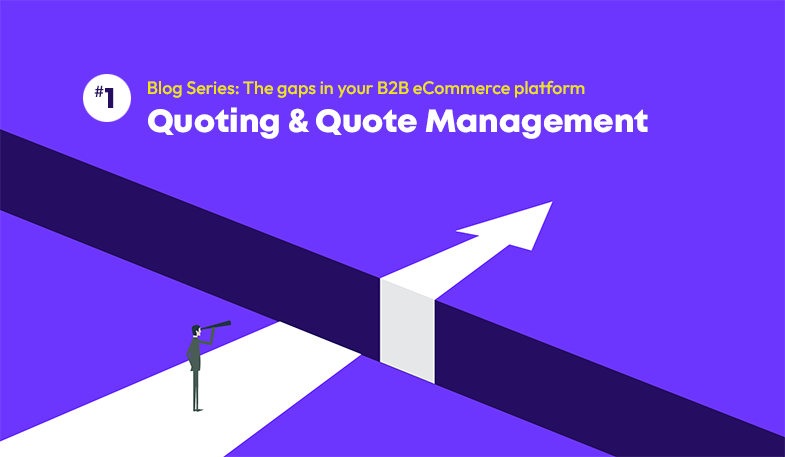B2B Marketplace: Adding Value, Multiplying Revenue Possibilities with Commerce-as-a-Service

In which Matt Boland, Director, Global Partner Development at Ultra, examines the revenue potential for embracing marketplace as part of a holistic eCommerce platform.
Foreword
Marketplaces are a great solution for growing businesses
Marketplace solutions are typically complex, singularly focused, and therefore dependent on additional core “enterprise level” software components and expensive in both license cost and services. Complexity, dependency and cost has taken many out of the buying market for a marketplace solution.
Whatever your position, whether you are a manufacturer, distributor or retailer, adding a marketplace is a great opportunity to open another channel for your online business by:
- Being a scalable business model
- Kick starting an online revenue channel which can integrate into your bricks and mortar business
- As a starting point to establishing people, teams and building business processes to support your ongoing omnichannel roadmap
Importantly, marketplaces are often a means of managing the channel friction and disintermediation happening between manufacturing, distribution and retail as everyone races to “own” the end customer.
Marketplaces are scalable, efficient, can expand quickly and importantly provide insight on what your consumers are doing online. Marketplaces suit many SME businesses and are a significant play in the next wave of omnichannel.
Matt Cowie is co-founder of TORO Technology, a systems integration company and Ultra Commerce partner. He is a Chartered Marketer (MCIM -UK) and a former lecturer and direct marketing industry judge with the New Zealand Marketing Association.
Summary
Adding a marketplace channel as a revenue stream for your existing business by providing eCommerce services to your current partners (vendors, distributors, dealers, etc.) is no longer cost-prohibitive, or requires the addition of multiple software solutions to support. Ultra Commerce provides an all-in-one Marketplace Platform to enable:
- Aggregation of multiple sellers / suppliers to sell either B2B or B2C (and more) via a curated marketplace;
- B2A (any) Commerce from you to your customers through approved seller / supplier storefronts in a highly curated marketplace
- Ability to launch an unlimited number of independent storefronts, allowing each marketplace participant (that so desire) to have their own
- branded website;
- Multi-party Order Management, Orchestration, Visibility, and Fulfillment – leveraging available inventory from anywhere in the value chain to fulfill orders;
- Standardized product catalog that gives all parties the opportunity to leverage a prepopulated catalog with inventory, information and media A customized storefront experience, without restrictive layouts or templates, powered by the flexibility to create a commerce storefront that is customized and appropriate for the marketplace experience.
What exactly is an online marketplace?
An online marketplace is a way for organizations to create a new revenue stream while expanding the assortment of products available to their customers. By offering an arena for multiple sellers to come together, attracting new customers and vendors in the ‘under-a-single-roof’ approach – all while owning the customer and user experience.
The Case for B2B Marketplaces
Our partner SmartOSC had this to say about Marketplace growth and adoption:
“At ULTRA Commerce, we see the most significant influx of new Marketplace businesses in the Distribution Industry and Business Associations. Why? Global ‘generalist’ marketplaces have become the industry’s biggest challenge – and most significantly for these two. They are often a haven to counterfeit goods, pirated products and less than reputable dealers with little to no expertise with the products they sell that provide limited if any support – and all sales are final.”
The strategy for the Marketplace Operator is simple to understand, and the benefits are far-reaching. Our most compelling marketplace engagements come from the associations, consolidators, and distributors, those we call the “aggregators.”
- Associations – quickly becoming THE OPTIMAL MARKETPLACE OPERATOR; what better way to add value to your members than to provide a premier sales channel, where all can participate in a full or regulated scale through a separate channel.
- Consolidators – businesses that sit on the fringe of an industry, providing special services to industries. For example, a company specializing in financing for specific industries can create a marketplace that provides an additional channel for its clients.
- Distributors – have the partner scale to drive marketplace adoption. For distributors, a marketplace offers an expanded customer base and increased sales with existing customers and retail margins. It also delivers a complete catalog to a broader audience while reducing the Cost of Goods Sold (COGS).
- Manufacturers – expanding the availability of assortment and retail margin on direct product acquisitions, reduced COGS, improved customer retention; and potentially adding the creation of completed custom-built products made up of components from multiple manufacturers as a finished good.
- Consumers – consumers are the big winner by buying in an Industry Specialized Marketplace (ISM) that will provide a one-stop-shop with expert participants, superior customer service and increased (global) visibility to inventory. Another bonus is that the marketplace thoroughly vets suppliers as providers of quality goods.
Stay tuned for part 2 in this series. Here’s a teaser quote from that installment:
“A marketplace is the next step in continuing to disrupt the traditional supply chain and route to market sales process for B2B businesses” says Kingston Lee-Young, CEO of Digital Mavens a specialist digital and eCommerce agency in Sydney. “For the right B2B business, a marketplace will transform their ability to engage with customers and suppliers, leading to more streamlined relationships, operational and back-office efficiencies, and the ability to scale and sell more to more customers.”
Resource Center

A new blog series about the critical eCommerce capabilities missing in most eCommerce platforms for B2B companies. #1: Quoting & Sales Support

A closer look from the Ultra perspective on what we really mean when we talk about headless commerce and why it may not be right for every company.

Davis Art is now the only online K-12 publisher dedicated to the arts, creating top-notch curriculum and resources for art educators nationwide, all from the Ultra Commerce platform.
